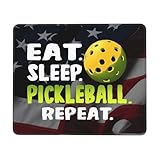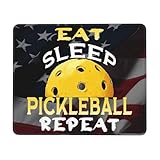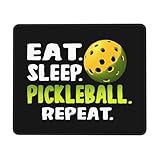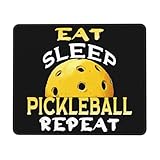Have you ever dreamt of dominating the pickleball court, effortlessly executing those dink shots and crushing every overhead smash? While practice and skill are essential, a often overlooked aspect of achieving peak performance lies in the quality of your sleep. Optimizing sleep for pickleball performance can be the game-changer you need to elevate your game and reach your full potential. In this article, we will delve deep into the science of sleep and its impact on pickleball prowess, providing you with actionable strategies to improve your sleep and unlock your inner pickleball champion.
The Science of Sleep and Athletic Performance
Sleep is crucial for both physical and cognitive recovery. During sleep, your body repairs muscle tissue, replenishes energy stores, and releases essential hormones for growth and repair. For pickleball players, this translates to faster muscle recovery after intense matches, improved reaction time, and enhanced agility on the court. Furthermore, adequate sleep sharpens cognitive function, boosting your ability to strategize, make quick decisions, and maintain focus during crucial moments in a game.
How Sleep Deprivation Impacts Pickleball Players
Sleep deprivation can significantly hinder your pickleball performance. Lack of sleep can lead to:
- Decreased reaction time: Imagine trying to return a fast-paced serve when your reflexes are sluggish. Sleep deprivation can slow down your reaction time, making it difficult to keep up with the demands of the game.
- Impaired decision-making: Pickleball requires strategic thinking and quick decision-making. Sleep deprivation can cloud your judgment, leading to poor shot selection and unforced errors.
- Reduced accuracy and power: Tired muscles don’t perform optimally. Lack of sleep can weaken your muscles, affecting your ability to generate power and maintain accuracy in your shots.
- Increased risk of injury: When you’re fatigued, your coordination and balance suffer, putting you at a greater risk of sprains, strains, and other injuries.
Creating a Sleep Sanctuary for Optimal Pickleball Performance
Improving your sleep quality involves establishing a consistent sleep routine and creating a sleep-conducive environment. Here are some practical tips to optimize your sleep for pickleball:
Establish a Regular Sleep Schedule
Consistency is key when it comes to regulating your body’s natural sleep-wake cycle. Go to bed and wake up around the same time each day, even on weekends, to maintain a consistent sleep rhythm.
Optimize Your Sleep Environment
Create a relaxing and dark bedroom environment. Invest in blackout curtains, earplugs, or a white noise machine to minimize distractions. Ensure your bedroom is cool and well-ventilated for optimal sleep temperature.
Pre-Sleep Rituals for Better Sleep
Wind down before bed with relaxing activities such as reading, taking a warm bath, or listening to calming music. Avoid screen time at least an hour before bedtime, as the blue light emitted from electronic devices can interfere with melatonin production.
Nutrition and Hydration for Sound Sleep
Proper nutrition and hydration play a significant role in sleep quality. Avoid heavy meals and caffeine or alcohol close to bedtime. Staying hydrated throughout the day can also improve sleep.
Managing Stress and Anxiety
Stress and anxiety can significantly impact sleep. Practice relaxation techniques such as deep breathing exercises, meditation, or yoga to manage stress levels and promote better sleep.
The Importance of Naps for Pickleball Players
Strategic napping can be beneficial for pickleball players, especially for those with demanding schedules or who are recovering from intense training. A short 20-30 minute nap can improve alertness, enhance cognitive function, and reduce fatigue without interfering with nighttime sleep.
Post-Game Recovery and Sleep
After a strenuous pickleball match, prioritizing sleep is crucial for muscle recovery and replenishing energy stores. Combine adequate sleep with proper post-game nutrition, such as consuming protein and carbohydrates, to optimize recovery and prepare for your next game. For more insights on post-game nutrition, check out this helpful resource: Post-Game Nutrition for Faster Recovery.
Fine-Tuning Your Sleep for Competitive Pickleball
For competitive pickleball players, optimizing sleep becomes even more critical. Consistent high-quality sleep can provide a competitive edge by enhancing reaction time, improving decision-making under pressure, and ensuring optimal physical performance during tournaments.
Mental Strategies for Sleep and Performance
Mental strategies, such as visualization and mindfulness, can be powerful tools for improving both sleep quality and on-court performance. Visualizing successful shots and maintaining a positive mindset can enhance confidence and reduce anxiety, contributing to better sleep and peak performance during competitions. For tips on managing stress and anxiety in competitive pickleball, read this informative article: Managing Stress and Anxiety in Competitive Pickleball.
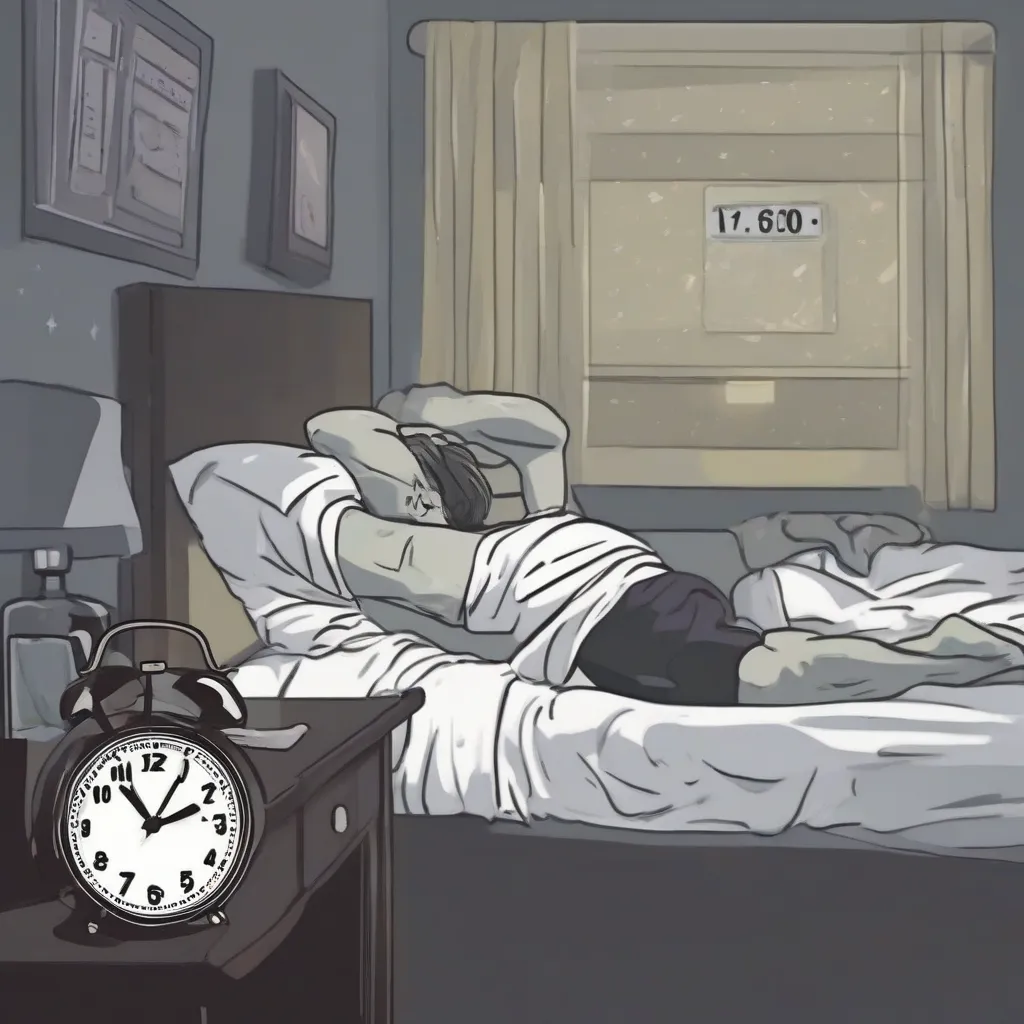 Optimizing Sleep for Pickleball
Optimizing Sleep for Pickleball
- Ample Space For Mouse Movement: The Generous Size Of The 12x10-Inch Mouse Pad Provides Ample Space For Smooth And Unrestricted Mouse Movement. Users Can Enjoy Precise Control And Accuracy, Making It Perfect For Gamers, Graphic Designers, And Anyone Who Requires Precise Cursor Movement.
- Versatile Design: The 12x10-Inch Size Strikes A Balance Between Portability And Functionality, Making It Suitable For Various Setups. Whether You'Re Using A Laptop Or A Desktop Computer, This Size Offers Enough Room For Both Everyday Tasks And Intense Gaming Sessions.
- Ample Space For Mouse Movement: The Generous Size Of The 12x10-Inch Mouse Pad Provides Ample Space For Smooth And Unrestricted Mouse Movement. Users Can Enjoy Precise Control And Accuracy, Making It Perfect For Gamers, Graphic Designers, And Anyone Who Requires Precise Cursor Movement.
- Versatile Design: The 12x10-Inch Size Strikes A Balance Between Portability And Functionality, Making It Suitable For Various Setups. Whether You'Re Using A Laptop Or A Desktop Computer, This Size Offers Enough Room For Both Everyday Tasks And Intense Gaming Sessions.
- Ample Space For Mouse Movement: The Generous Size Of The 12x10-Inch Mouse Pad Provides Ample Space For Smooth And Unrestricted Mouse Movement. Users Can Enjoy Precise Control And Accuracy, Making It Perfect For Gamers, Graphic Designers, And Anyone Who Requires Precise Cursor Movement.
- Versatile Design: The 12x10-Inch Size Strikes A Balance Between Portability And Functionality, Making It Suitable For Various Setups. Whether You'Re Using A Laptop Or A Desktop Computer, This Size Offers Enough Room For Both Everyday Tasks And Intense Gaming Sessions.
- Ample Space For Mouse Movement: The Generous Size Of The 12x10-Inch Mouse Pad Provides Ample Space For Smooth And Unrestricted Mouse Movement. Users Can Enjoy Precise Control And Accuracy, Making It Perfect For Gamers, Graphic Designers, And Anyone Who Requires Precise Cursor Movement.
- Versatile Design: The 12x10-Inch Size Strikes A Balance Between Portability And Functionality, Making It Suitable For Various Setups. Whether You'Re Using A Laptop Or A Desktop Computer, This Size Offers Enough Room For Both Everyday Tasks And Intense Gaming Sessions.
- Ample Space For Mouse Movement: The Generous Size Of The 12x10-Inch Mouse Pad Provides Ample Space For Smooth And Unrestricted Mouse Movement. Users Can Enjoy Precise Control And Accuracy, Making It Perfect For Gamers, Graphic Designers, And Anyone Who Requires Precise Cursor Movement.
- Versatile Design: The 12x10-Inch Size Strikes A Balance Between Portability And Functionality, Making It Suitable For Various Setups. Whether You'Re Using A Laptop Or A Desktop Computer, This Size Offers Enough Room For Both Everyday Tasks And Intense Gaming Sessions.
- Ample Space For Mouse Movement: The Generous Size Of The 12x10-Inch Mouse Pad Provides Ample Space For Smooth And Unrestricted Mouse Movement. Users Can Enjoy Precise Control And Accuracy, Making It Perfect For Gamers, Graphic Designers, And Anyone Who Requires Precise Cursor Movement.
- Versatile Design: The 12x10-Inch Size Strikes A Balance Between Portability And Functionality, Making It Suitable For Various Setups. Whether You'Re Using A Laptop Or A Desktop Computer, This Size Offers Enough Room For Both Everyday Tasks And Intense Gaming Sessions.
Conclusion
Optimizing sleep for pickleball performance is not just about getting enough hours of shut-eye; it’s about creating a holistic approach that prioritizes sleep quality, consistency, and recovery. By implementing the strategies outlined in this article, you can transform your sleep habits and unlock your full pickleball potential. Remember, a well-rested pickleball player is a more powerful, agile, and focused player. So, prioritize your sleep, and watch your game reach new heights!
We encourage you to share your experiences and insights in the comments below. What sleep strategies have worked best for you in improving your pickleball performance? We’d love to hear from you!
